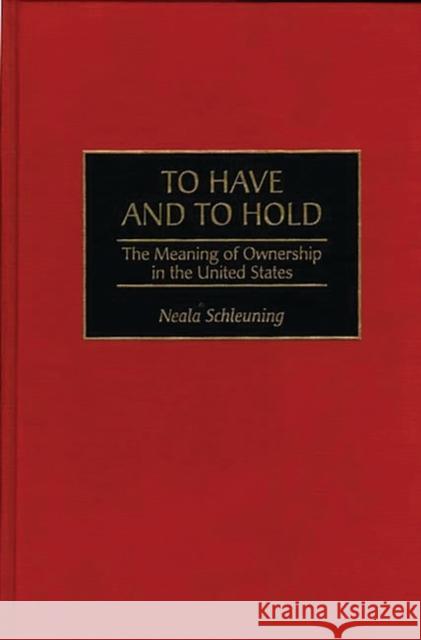To Have and to Hold: The Meaning of Ownership in the United States » książka
To Have and to Hold: The Meaning of Ownership in the United States
ISBN-13: 9780275957230 / Angielski / Twarda / 1997 / 256 str.
Dr. Neala Schleuning provides a wide-ranging interdisciplinary exploration of the idea of ownership. She focuses primarily on the transition in modes and meaning of ownership since the emergence of the Industrial Revolution. Her primary argument is that the experience of ownership has been one of enclosure, which in turn conflicts with the goals of democratic society. Topics include land ownership, private property in a capitalist society, and the changing nature of ownership in a consumer society. Psychological, political, and social expressions of owning are explored, including the relationship between objects and social status, the nature of human desire and its manipulation, ownership and freedom, and the making of community. Special emphasis is placed on the relationship between the idea of ownership and the control and manipulation of women.
For millenia the idea of ownership was closely tied to the land and to the creative work of individuals living in community with others. The making and sharing of objects between people lies at the core of social and political activity that has changed little over time. In the 17th century, however, ownership began to be transformed from a collective to an individual activity, and from a shared activity to one of exclusion and accumulation. In the late 19th century, ideas of owning shifted again, from the enclosure of land and capital to the personal accumulation of consumer goods.
Based primarily on research in Western culture and the experience of the United States, Dr. Schleuning's book explores the deep social, political, economic, and personal forces shaping and changing the human relationship with the natural and made worlds. This work is important reading for political economists, political scientists, and others concerned with philosophical issues involving property.











